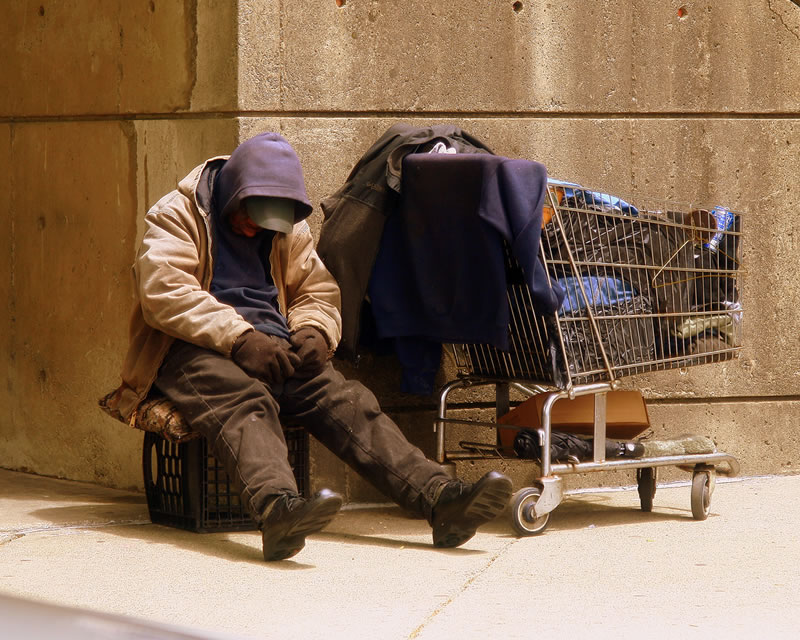Church Work vs. Service to Others
 Are you in a rut? The Christian kind — when you serve all day or all week at church, but don’t really feel like you’re touching the heart of your King? Does your true service to others feel non-existent?
Are you in a rut? The Christian kind — when you serve all day or all week at church, but don’t really feel like you’re touching the heart of your King? Does your true service to others feel non-existent?
I found 5 areas where we are called to serve that directly blesses Him. But, don’t take my word for it, read it from Christ Himself:
“For I was hungry and you gave me something to eat, I was thirsty and you gave me something to drink, I was a stranger and you invited me in, I needed clothes and you clothed me, I was sick and you looked after me, I was in prison and you came to visit me…Truly I tell you, whatever you did for one of the least of these brothers and sisters of mine, you did for me.” Matthew 25: 35-36, 40
Often times, we underestimate the power of kindness shown in secret. Work done outside the four walls of the church, unnoticed and without immediate reward, seems worthless or worth less than holding down the position of usher, deacon, greeter or Sunday school teacher.
But, Christ gives us simple examples of how to serve Him. He values our actions towards those whom the world views as less than valuable. I encourage you to read through this section of scripture and ask God to show you literal ways to serve Him by serving those around you.
Christian Church Work: How Can We Be Your Hands and Feet, Lord?
When I asked Him this question, here’s what He shared with me. As you go about your day, search for:
Those who are hungry and thirsty
I live in a decent-sized city, so it’s not difficult for me to find people carrying cardboard signs exclaiming their hunger. There is an incredible physical need in this world to combat poverty. Our bodies can’t function to the fullest without proper nutrition, but what often goes unnoticed is nourishment for our malnourished souls.
Did you know that you can eat and still be hungry? You can drink and still be thirsty? Jesus met a woman at a well and introduced her to Himself, a well that would never run dry (John 4:14). It might seem easier to buy a sandwich for someone to satisfy their growling belly, but let’s not forget to stay focused on giving the gift of Jesus Christ that will satisfy their soul.
Those who are left out
We all desire community. It’s a basic necessity, according to Psychologist Abraham Maslow’s renowned pyramid of needs. People want to belong and feel as if someone cares about them. Perhaps the term stranger didn’t necessarily refer to someone outside the body of Christ, but rather inside.
Is there someone in your congregation who always sits alone? Let’s always be willing to expand the boundaries of the circles we keep by welcoming and serving others.
Those without a covering
Practically, there is immense value in clothing someone. My daughter and I were taking a walk to the store and we passed by a man who appeared to be homeless. His clothes were dirty and full of holes. My heart hurt because I didn’t have the money to buy him a new shirt or pair of pants.
The Lord heard my cry and reminded me of another way I could cover this man, in prayer. What a beautiful reflection of Christ — to cover someone especially when you’ve seen their shame.
Those who are sick
God is the same yesterday, today and forever. The same power that raised Jesus Christ from the dead lives in us, and we have the privilege of declaring healing over every sickness and disease. This is the absolute truth, but in the verse above, Jesus described service to the sick as “looking after Me” not “healing Me”. Let’s ultimately believe God for healing, but remain compassionate caregivers to those in need during the process.
Those who are bound
I’ve always admired those who worked in prison ministries. They cast out judgment and fear to speak life to those whose lives are lived behind bars. I have never had the opportunity to actually go to a prison, but I have had the experience of being bound myself.
When I see that someone is bound by the enemy, I don’t stand tall in my new place of freedom and look down upon them. I visit them, the same way Jesus visited me in my own pit. It’s entirely humbling and uncomfortable at times, but it brings honor and glory to our King and freedom to our brothers and sisters.
So, What’s the Play Call?
I pray that we would always be mindful of Christ’s definition of service. As we grow in our walk with the Lord, let us not ever forget to honor the least of these by serving others, because in doing so, we honor our great and mighty King.




